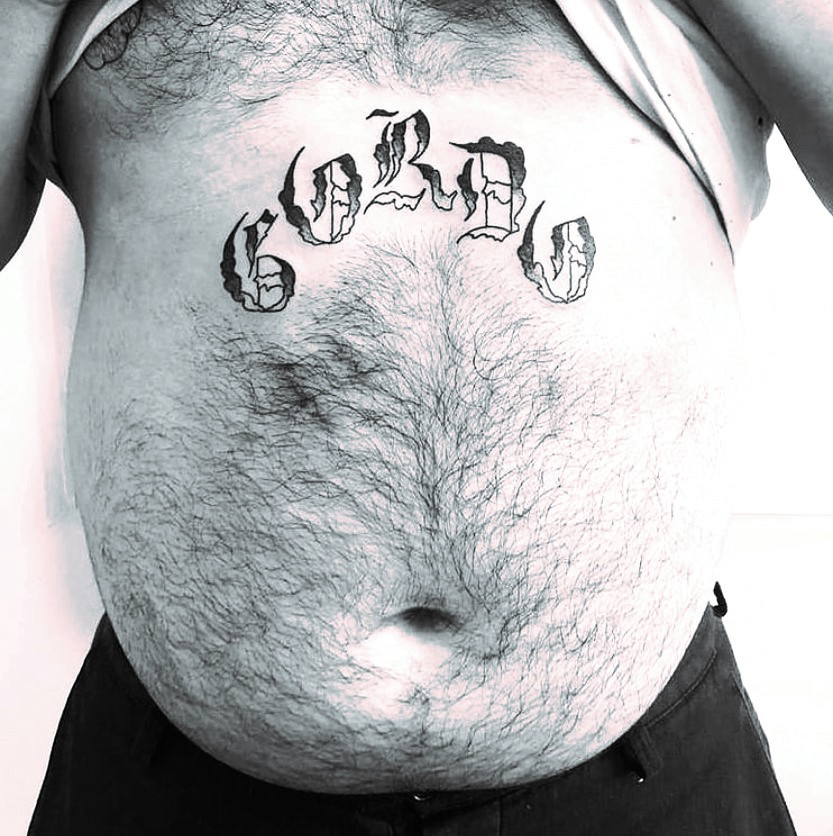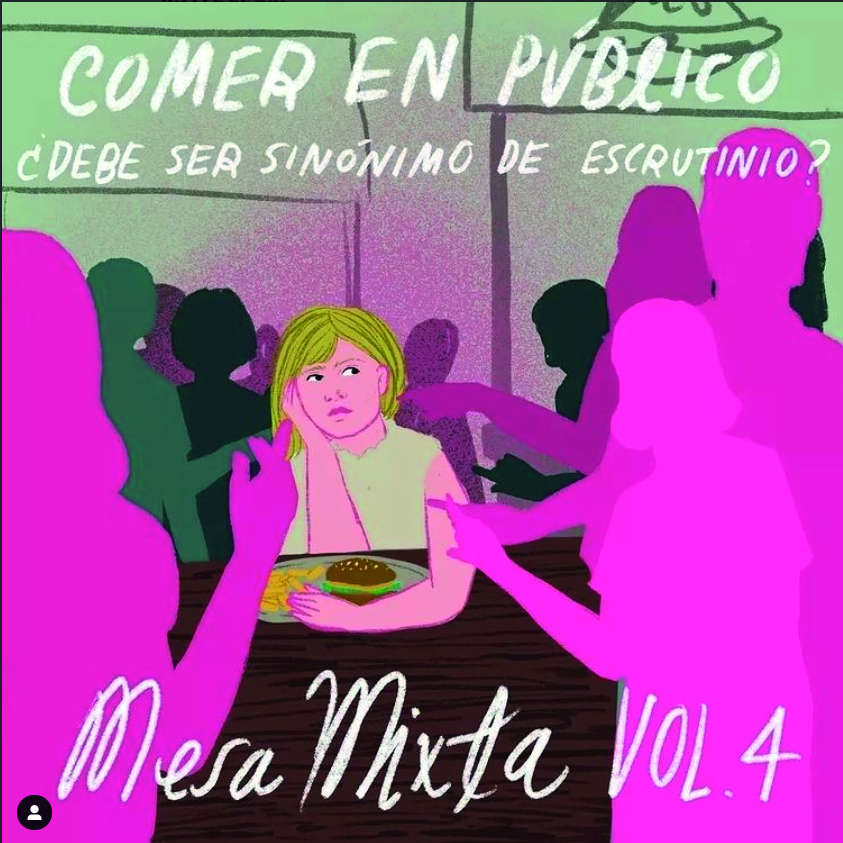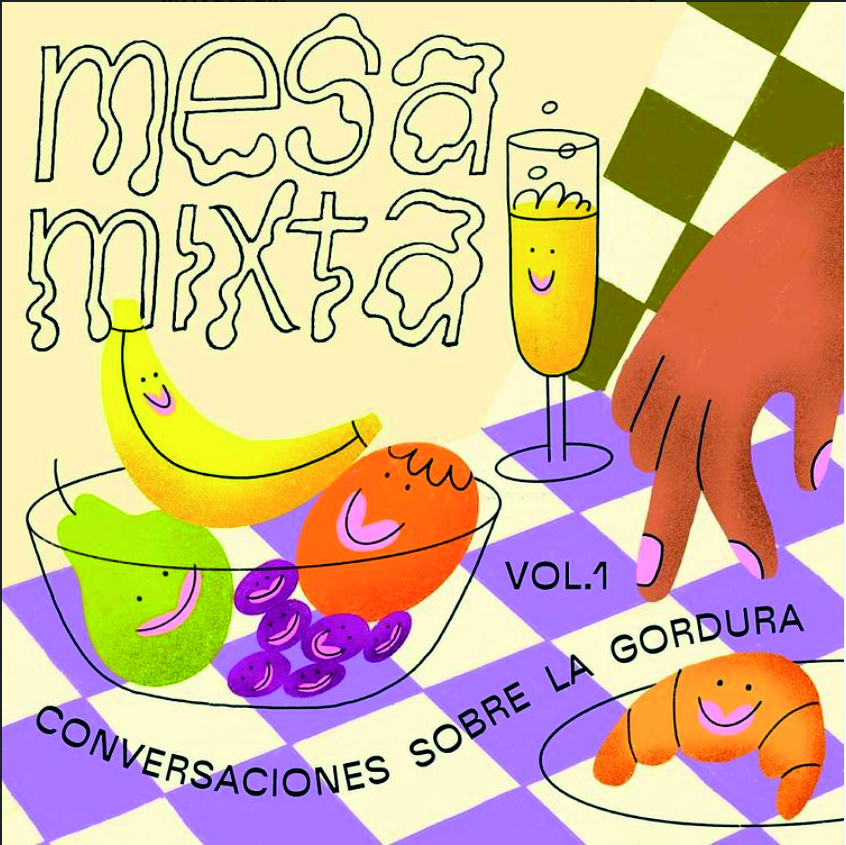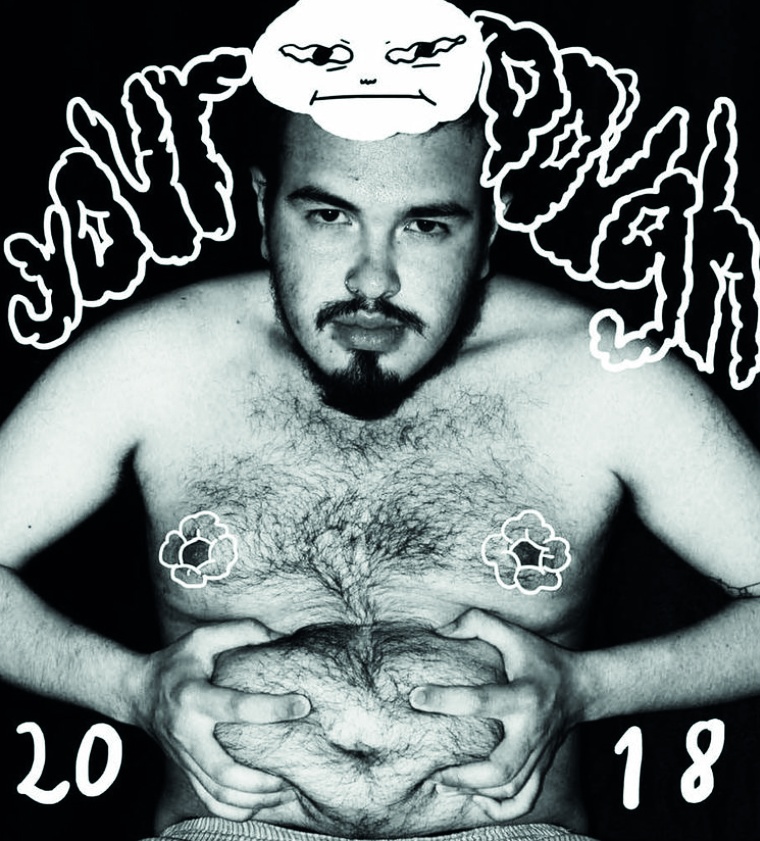
Posted on the 01.05.2019
Fatphobia is defined as a pathological fear of fatness. “A hatred of big bodies.” Pointing them “as lazy, and unintelligent, or disgusting,” says Mary Himmelstein, Ph.D., an assistant professor at Kent State University who studies how weight stigma affects people’s health.1
Why do we believe we have the right to judge the bodies of others?
“What makes us attractive, successful, and healthy?”2
Why do I need a gap between my legs or a flat belly to feel enough?
Like many other ways of discrimination, Fatphobia goes unnoticed because it is structural and systemic. Comments such as or are as violent as or and can be heard in different contexts, from children’s schools, to work and academic environments. And each day most common in Social media.





Posted between March and November, 2021
Mesa Mixta is a project created by the Colombian Artist YourDough (Edison Jimenez) in 2020. The project arises from the artist’s interest in the psychosocial implications of fatphobia, namely in Latinamerica. It was born to promote dialogues about fatness and build support networks for people who have suffered this kind of discrimination. Each version of the project has a Latin American women illustrator to promote their work and reaffirm a queer position, which I will discuss later.
I witnessed how Edison conducted the whole conversation by listening to people’s experiences during a couple of meetings I had the opportunity to attend. Now I cannot stop thinking about him as the Feminist Ear proposed by Sarah Ahmed in her book Complaint! He created a safe space for people to complain about being harassed and bullied because of their weight. At those sessions, I heard many difficult and painful stories. They used to be related to sexual violence in childhood or adolescence. Others came from toxic family relationships. My account was more related to trying to fit in those beauty ideas imposed for other girls in the school. These stories gave rise to physical and mental health problems connected to understanding one’s body and feeding, reaching in many cases to social anxiety, depression, and eating disorders.
Sarah Ahmed said, “Words carry a charge; you can end up being made to feel that you are the problem, that the problem is you.”3 and people who attended Mesa Mixta sessions agreed with that. They were aware that most of the problems related to their bodies started when someone called them pejorative expressions associated with the size of their bodies.
The real problem with Fatphobia is that it is deeply rooted in the collective unconscious. I would say this has not always been like this. Being fat was considered healthy and prosperous in the past. Now is the opposite because the market mediates bodies. Capitalism has changed human consumption habits. Nowadays, rich people can consume “fit” and “healthy” food meanwhile “the most accessible and affordable options [which] are calorie-dense and processed”4 are relegated to the lower classes.
In that way, fatphobia is connected with the Intersectional feminism concept coined by “Kimberlé Crenshaw, an American law professor who explained it as “a prism for seeing the way in which various forms of inequality often operate together and exacerbate each other.”5 Consequently, people of color, as well as women and other marginalized individuals with large bodies “face dual stigmatization“6 (Virgie Tovar) and become more accessible and vulnerable targets of discrimination.
Defined by himself as fat and queer Latin American, Edi proposes Mesa Mixta within the context of intersectional feminism as a place to attack fatphobia and another kind of bias.


- Stephanie Dolgoff. The Harmful and Insidious Effects of Fatphobia. in: Good House Keeping, Mar 8, 2021, https://www.goodhousekeeping.com/health/a35422452/fat-phobia/ (accessed Jan 28, 2022).
- Ibid.
- Sarah Ahmed. Complaint! Durham and London: Duke University Press, 2021, p.19.
- Dolgoff 2021.
- UN Women. Intersectional feminism: what it means and why it matters right now. Jul 1, 2020, https://www.unwomen.org/en/news/stories/2020/6/explainer-intersectional-feminism-what-it-means-and-why-it-matters#:~:text=Kimberl%C3%A9%20Crenshaw%2C%20an%20American%20law,created%20equal%2C%E2%80%9D%20she%20says (accessed Feb 3, 2022).
- Dolgoff 2021.